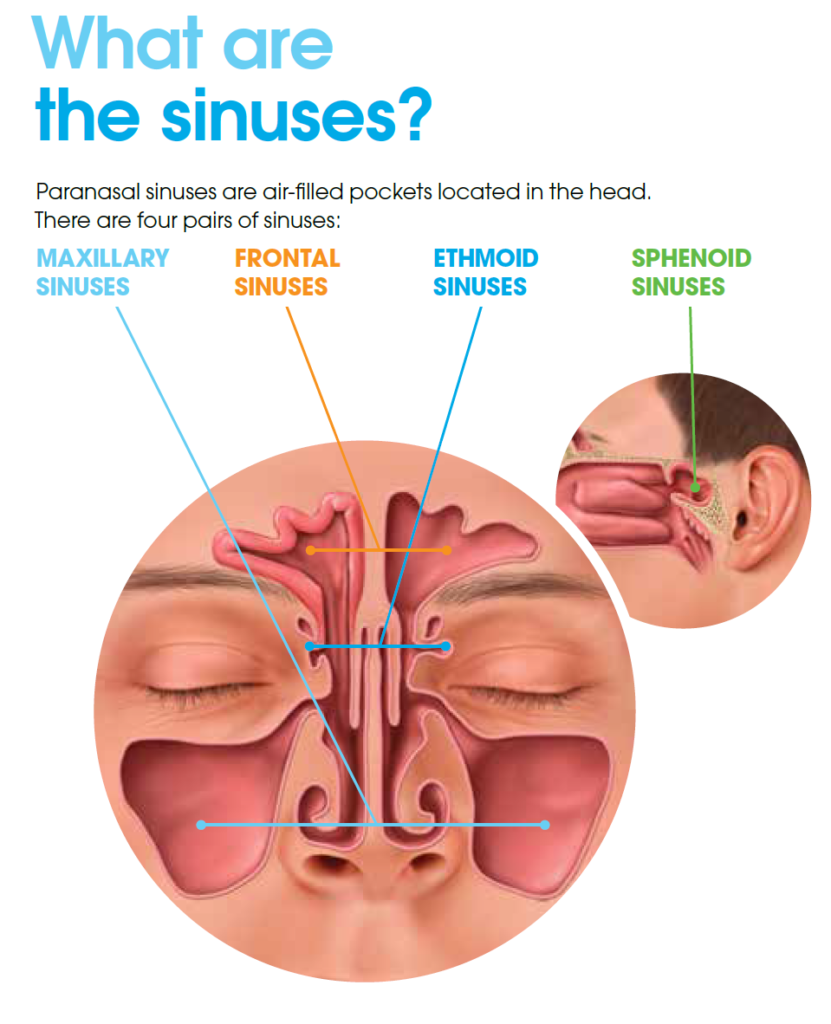Sinusitis is a condition that occurs when the sinuses become inflamed and swollen. The sinuses are hollow cavities located in the bones around the nose and eyes, and they produce mucus that helps to moisten the nasal passages and trap dust and other particles.
Sinusitis can be acute, which lasts for a short period of time, or chronic, which lasts for more than 12 weeks. It is usually caused by a viral infection, such as the common cold, but can also be a result of bacterial or fungal infections, allergies, or structural abnormalities in the nasal passages.
The symptoms of sinusitis can vary depending on the severity and duration of the condition, but common symptoms include:
1. Facial pain or pressure: This is often felt around the cheeks, forehead, or eyes.
2. Nasal congestion: The nasal passages may feel blocked or stuffy.
3. Runny nose: Thick, discolored discharge may be present.
4. Loss of smell: The ability to smell may be reduced or lost.
5. Headache: This can be a dull ache or a more intense pain.
6. Cough: A persistent cough may be present, especially at night.
7. Fatigue: Sinusitis can cause tiredness and a general feeling of being unwell.
Treatment for sinusitis typically involves managing the symptoms and addressing the underlying cause. This may include:
